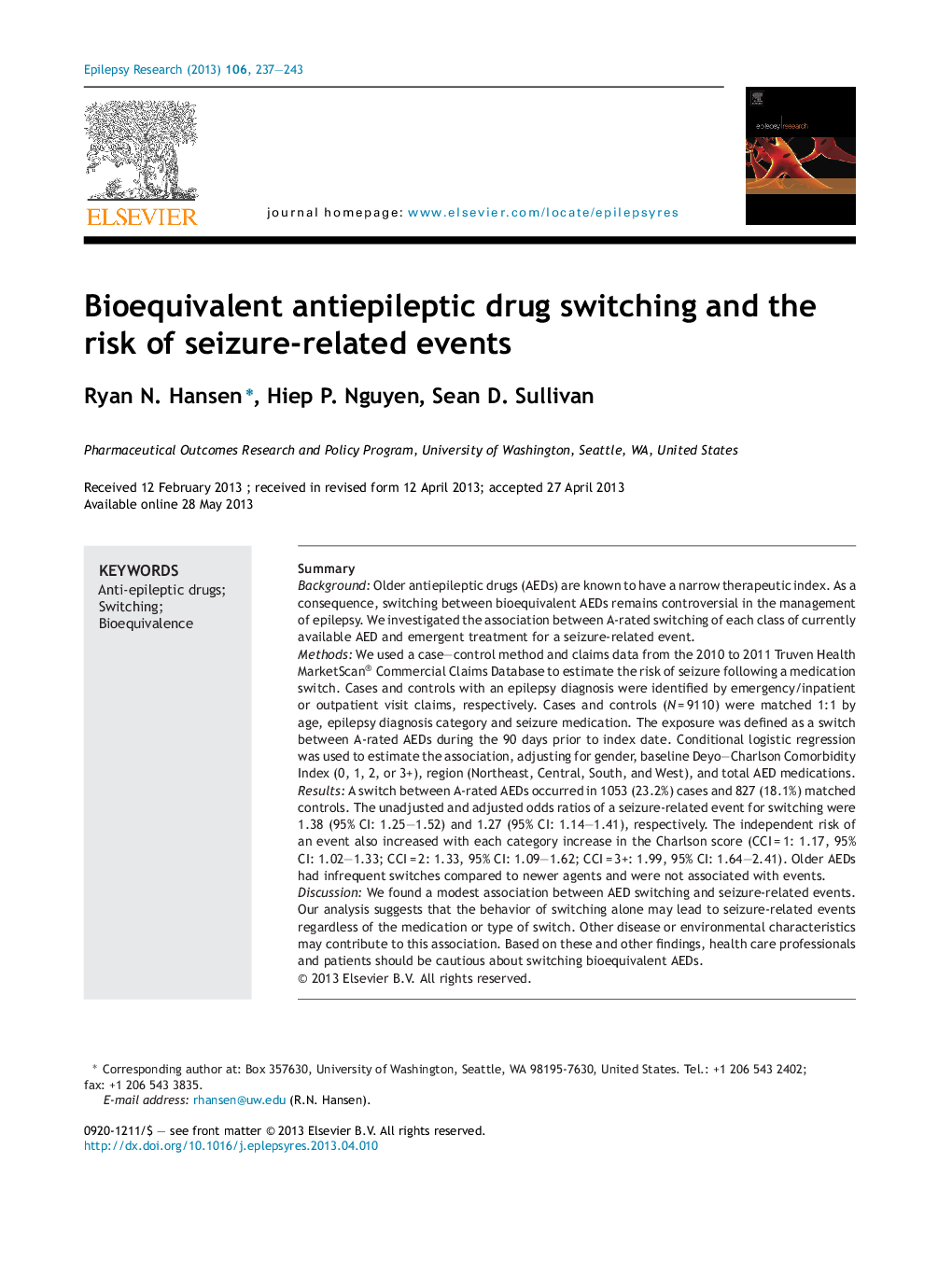| کد مقاله | کد نشریه | سال انتشار | مقاله انگلیسی | نسخه تمام متن |
|---|---|---|---|---|
| 6015757 | 1579916 | 2013 | 7 صفحه PDF | دانلود رایگان |
SummaryBackgroundOlder antiepileptic drugs (AEDs) are known to have a narrow therapeutic index. As a consequence, switching between bioequivalent AEDs remains controversial in the management of epilepsy. We investigated the association between A-rated switching of each class of currently available AED and emergent treatment for a seizure-related event.MethodsWe used a case-control method and claims data from the 2010 to 2011 Truven Health MarketScan® Commercial Claims Database to estimate the risk of seizure following a medication switch. Cases and controls with an epilepsy diagnosis were identified by emergency/inpatient or outpatient visit claims, respectively. Cases and controls (NÂ =Â 9110) were matched 1:1 by age, epilepsy diagnosis category and seizure medication. The exposure was defined as a switch between A-rated AEDs during the 90 days prior to index date. Conditional logistic regression was used to estimate the association, adjusting for gender, baseline Deyo-Charlson Comorbidity Index (0, 1, 2, or 3+), region (Northeast, Central, South, and West), and total AED medications.ResultsA switch between A-rated AEDs occurred in 1053 (23.2%) cases and 827 (18.1%) matched controls. The unadjusted and adjusted odds ratios of a seizure-related event for switching were 1.38 (95% CI: 1.25-1.52) and 1.27 (95% CI: 1.14-1.41), respectively. The independent risk of an event also increased with each category increase in the Charlson score (CCIÂ =Â 1: 1.17, 95% CI: 1.02-1.33; CCIÂ =Â 2: 1.33, 95% CI: 1.09-1.62; CCIÂ =Â 3+: 1.99, 95% CI: 1.64-2.41). Older AEDs had infrequent switches compared to newer agents and were not associated with events.DiscussionWe found a modest association between AED switching and seizure-related events. Our analysis suggests that the behavior of switching alone may lead to seizure-related events regardless of the medication or type of switch. Other disease or environmental characteristics may contribute to this association. Based on these and other findings, health care professionals and patients should be cautious about switching bioequivalent AEDs.
Journal: Epilepsy Research - Volume 106, Issues 1â2, September 2013, Pages 237-243
